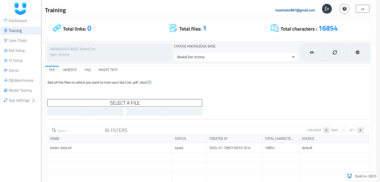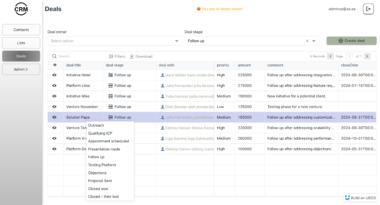Overview of MCP Server for GitHub API Integration
In today’s rapidly evolving technological landscape, the integration of AI and machine learning with existing platforms is not just an advantage—it’s a necessity. The MCP Server, specifically designed to integrate with the GitHub API, is a groundbreaking tool that facilitates seamless interaction between Large Language Models (LLMs) and GitHub repositories. This integration is powered by the Model Context Protocol (MCP), an open protocol that standardizes the way applications provide context to LLMs, acting as a bridge to external data sources and tools.
Key Features of MCP Server
Comprehensive GitHub Integration: MCP Server provides a robust integration with GitHub, allowing LLMs to access and interact with repositories, issues, commits, users, and more. This is achieved through a series of tools such as
search_repositories,search_issues, andsearch_commits.Enhanced Data Interaction: By using MCP, AI models can interact with GitHub data in real-time, enabling developers to automate workflows and enhance productivity. This interaction is crucial for tasks such as code analysis, issue tracking, and user management.
Scalable and Reliable: Designed to handle large volumes of data, the MCP Server can efficiently manage multiple requests and provide reliable performance, making it suitable for enterprises of all sizes.
Customizable and Open Source: With its open-source nature, developers can customize the MCP Server to fit their specific needs, ensuring it aligns with their organizational goals and workflows.
Secure Access Management: The integration requires a GitHub personal access token, ensuring that only authorized users can access and interact with the data, maintaining the security and integrity of your repositories.
Use Cases of MCP Server
Automated Code Review: By integrating with GitHub, developers can use LLMs to automatically review code, identify potential issues, and suggest improvements, significantly reducing the time spent on manual code reviews.
Enhanced Issue Tracking: With tools like
list_repositories_issuesandget_issue, teams can automate issue tracking, ensuring that all issues are logged, categorized, and prioritized efficiently.User Management and Analytics: The
search_userstool allows for comprehensive user management, enabling teams to analyze user contributions, track engagement, and optimize team performance.Data-Driven Decision Making: By leveraging the power of LLMs, organizations can gain insights from their GitHub data, driving data-driven decision-making processes.
The UBOS Platform
UBOS is a full-stack AI Agent Development Platform that focuses on bringing AI Agents to every business department. It helps organizations orchestrate AI Agents, connect them with enterprise data, and build custom AI Agents with LLM models and Multi-Agent Systems. The integration of MCP Server with the UBOS platform enhances its capabilities, providing businesses with a powerful tool to automate and optimize their workflows.
Conclusion
The MCP Server for GitHub API is more than just an integration tool—it’s a gateway to harnessing the full potential of AI in software development. By bridging the gap between LLMs and GitHub, it empowers developers to automate processes, enhance productivity, and drive innovation. Whether you’re a small startup or a large enterprise, the MCP Server offers a scalable and customizable solution to meet your AI integration needs.
Github MCP Server
Project Details
- ParasSolanki/github-mcp-server
- Last Updated: 3/6/2025
Recomended MCP Servers

It's like v0 but in your Cursor/WindSurf/Cline. 21st dev Magic MCP server for working with your frontend like...

MCP server to extract contents from a PDF file
A Model Context Protocol server implementation for ChatterBox, enabling AI agents to interact with online meetings and generate...

MCP server to help LLMs to get access to Quran API (https://alquran.cloud/api).
mcp-suiteg
双色球历史开奖信息查询MCP服务

Use AI to edit image in Claude Desktop / Cursor (AI P图)

MCP server for interacting with Freepik's API, including stock photos and Mystic AI image generation

A Python-based Model Context Protocol (MCP) tool for Kubernetes clusters that exposes a comprehensive API to retrieve cluster...

Model Context Protocol Server for Safely Executing Pre-approved Commands
 From vibe coding to vibe deployment. UBOS MCP turns ideas into infra with one message.
From vibe coding to vibe deployment. UBOS MCP turns ideas into infra with one message.






